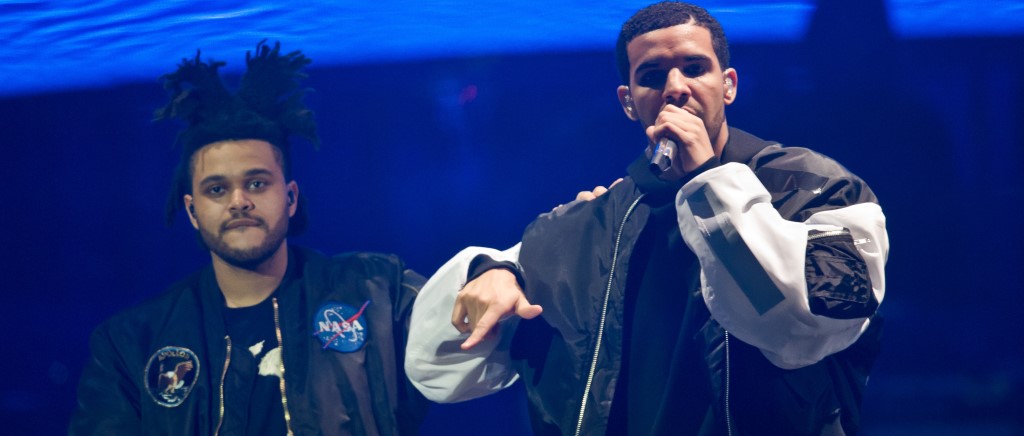
It was fun while it lasted, but it looks like the era of AI-generated reproductions of rappers’ voices online is already facing its end. As I predicted a couple of months ago, it only took the right/wrong artist being unwillingly exploited for profit before the labels stepped in, shutting down some of the more notable tracks.
“Heart On My Sleeve,” one such track that had gone viral after being posted on DSPs, was the subject of a takedown request by Universal Music Group, which had it pulled from streamers. The track garnered attention for pairing the voices of Canadian artists Drake and The Weeknd for a song about The Weeknd’s ex Selena Gomez; it was a reunion of sorts for two artists who were once a dynamic duo but have since seemingly kept each other at arm’s length after a falling out.
Drake, it should be noted, wasn’t laughing when an AI-generated cover of his voice rapping Ice Spice’s “Munch” came to his attention. It’s just one of many fan-created joke tracks, which even include a phony Eminem verse on a David Guetta song.
And while proponents said “Heart On My Sleeve,” created by anonymous TikToker ghostwriter977, sounded just like something the two performers would actually make, detractors derided the song for only doing so on a surface level, throwing in additional criticism for listeners who praised it, calling them nothing short of racist for downplaying the true creativity that goes into hip-hop (you don’t see, for instance, AI-generated pop-punk or country music going viral for sounding “authentic”).
How pathetically racist must you be to think that this even remotely sounds like a chart-topping hip-hop record
https://t.co/eOIfak88Aa
— Comorienne
(@_ShamGod) April 17, 2023
The first immediate thing that stands out is that so much of this AI music is going after rap/hip hop and that’s how you can tell the people behind it have contempt for it. I hope they get sued into oblivion — sick of their nonsense. https://t.co/8cQt5lGWXi
— Zito (@_Zeets) April 17, 2023
In a statement to Billboard, UMG decried the practice of generative AI copies of artists’ vocals, saying:
The training of generative AI using our artists’ music (which represents both a breach of our agreements and a violation of copyright law) as well as the availability of infringing content created with generative AI on DSPs, begs the question as to which side of history all stakeholders in the music ecosystem want to be on: the side of artists, fans and human creative expression, or on the side of deep fakes, fraud and denying artists their due compensation. We’re encouraged by the engagement of our platform partners on these issues – as they recognize they need to be part of the solution.
And hey, look: The irony of a major label complaining about “denying artists their due compensation” is not lost on me here. (Uproxx is an independent subsidiary of Warner Music Group.) But they’ve got a point: AI doesn’t just cut out the middleman (in this case, the labels), it also cuts out artists, who don’t get a say in the sort of subjects these fan-generated AI reproductions will ultimately indulge in (it’s only a matter of time until someone turns Kanye’s borderline neo-Nazi rants into a song, sung by an artist like Beyoncé or Rihanna). So, it’s probably best someone steps in sooner rather than later — at least to get some sort of legal framework in place so artists have recourse when they’re inevitably “forced” to “say” something they never said.
